Dr. Leonardo Gizzi, University of Stuttgart
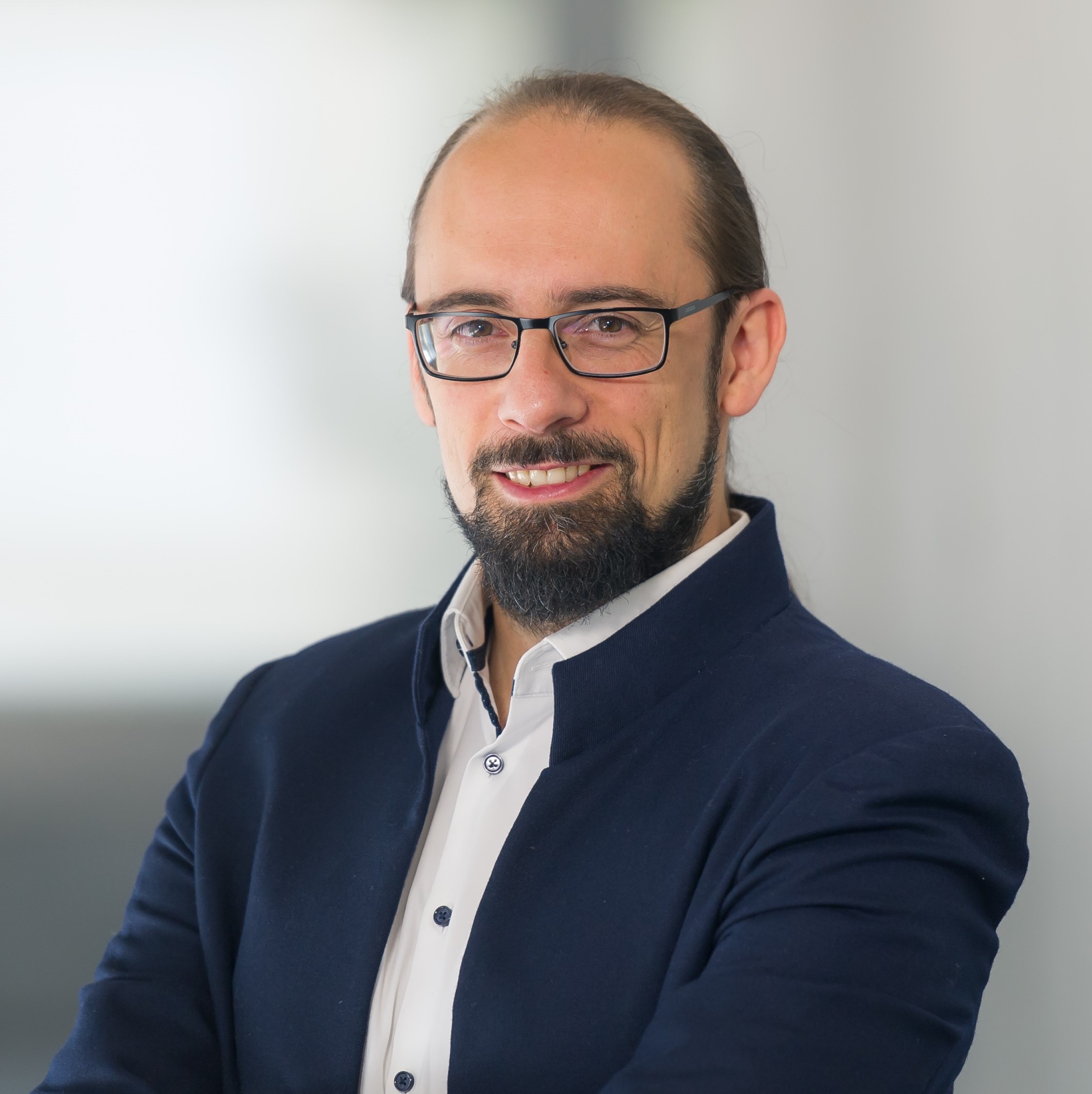
Dr.
Leonardo Gizzi has joined the Universtiy of Stuttgart in 2016. Here he serves as Senior Research Associate at the chair for ‘Continuum Biomechanics and Mechanobiology’.
There, he is the head of the newly established ‘Laboratory of Neuromechanics’ and responsible for the course ‘Introduction to Neuromechanics’ for the Master in Biomedical Engineering. Since January 2022 he is project leader at the Fraunhofer Institute
for Manufacturing Engineering and Automation (IPA). There, he is responsible for the QHMI project, that focuses on the use of quantum-based magnetic sensors for the control of upper limb prostheses. His research spans from basic neurophysiology (classical
and high-density EMG, EEG) and biomechanics (kinematics, dynamics), to clinical applications (neurological diseases, experimentally induced and chronic pain). Since 2016 he is involved in the development and optimization of 0D models for force estimation
and 3D continuum-mechanical models for the generation of synthetic neurophysiological signals. He holds a MS in Biomedical Engineering and PhD in Sport Sciences and Health (Human Physiology). From 2008 to 2010 he was PhD (and then post-doctoral fellow)
at the Center for Sensorimotor Interaction of the Aalborg University (Aalborg, Denmark). From 2011 to 2016 he served as postdoctoral scientist and Head (from 2012) of the Motor Physiology and Biomechanics Laboratory at Universitätsmedizin Göttingen.
For more info on Leonardo Gizzi click
here and
here.
Prof. Marco Testa, Department of Neuroscience, Rehabilitation, Ophthalmology, Genetics and Maternal Infantile Science, University of Genoa
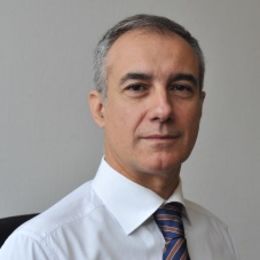
Graduated in Physical Education, in Physiotherapy and Osteopathy, Professor Testa got the PhD in Rehabilitation Science and Physiotherapy at the Vrije Universiteit Brussel in 2016. He is full time aggregate Professor at the Department
of Neuroscience, Rehabilitation, Ophthalmology, Genetics and Maternal Infantile Science of the University of Genoa. Coordinator and founder of the Master in Rehabilitation of Musculoskeletal Disorders at University Campus of Savona. Since 2021 he is Delegate of the Rector for the University Campus of Savona (University of Genova, Italy), where he manages, coordinates and develops the researching and teaching activities.
He
teaches Manual Therapy in the School of Physiotherapy and Physical Medicine and Rehabilitation in the Medical Specialization School of Rheumatology. His recent research activities are aimed to: validation and implementation of a visual feedback system for assessment of motor control of bite and pinching force; validation of IMU based system for the assessment and treatment of shoulder motor control;
validation of the “sensorised” sit to stand test; immersive virtual reality to induce placebo effect in musculoskeletal pain.
He is member of the editorial board of Musculoskeletal Science and Practice Journal, Archives of Physiotherapy and Scienza Riabilitativa. He has authored more than 90 articles in indexed journals (WOS,
SCOPUS, CINHAL), edited 8 Books and authored 18 Book’s chapters in the musculoskeletal rehabilitation field.
Prof. Oliver Röhrle, Founding Director of the Institute for Modelling and Simulation of Biomechanical Systems, University of Stuttgart
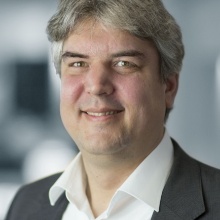
Prof. Oliver Röhrle is a Founding Director of the Institute for Modelling and Simulation of Biomechanical Systems and Professor for Continuum Biomechanics and Mechanobiology
at the University of Stuttgart. He is a Fellow of the Stuttgart Center for Simulation Science and a Senior Research Expert at the Fraunhofer IPA in Stuttgart. He received a Master of Science in Mathematics at the University of Wisconsin at Milwaukee,
USA (1999) and his Diplom in “Wirtschaftsmathematik (Mathematics and Economical Affairs)” at the University of Ulm (2000). After his PhD in Applied Mathematics at the University of Colorado at Boulder, USA (2004), he spent 4 years as a research scientist
at the Auckland Bioengineering Institute at the University of Auckland, New Zealand, before returning to Germany in 2008. In 2011, he received the Richard von Mises prize of the GAMM (Society of Applied Mathematics and Mechanics) and in 2012, he was awarded
an ERC Starting Grant on „LEAD – Lower Extremity Amputee Dynamics”. He is the Spokesperson of the International Research Training Group (GRK 2198) on “Soft Tissue Robotics” (jointly with the University of Auckland, New Zealand) funded by the German Research
Foundation (DFG) and the Spokesperson for the newly established DFG Priority Program (SPP 2311) on “Robustly coupling continuum-biomechanical in silico models to obtain active biological system models for later use in clinical applications - Co-design
of modeling, Numerics and usability”. His research focuses on various aspects of the musculoskeletal system, e.g., on novel chemo-electromechanical skeletal muscle models, biophysical recruitment models, virtual EMG predictions, continuum mechanical homogenisation
techniques for skeletal muscle tissues and forward-dynamics simulations of multi-muscle systems using three-dimensional continuum-mechanical skeletal muscle models. Moreover, he is interested in dental applications.
Mirko Job, PhD student, University of Genova
 Since 2017 he is a PhD student in Neuroscience at the University of Genova. The interests
gained during his university training in Bioengineering (2016) guide his research activity, aimed at the development of new methodologies and low-cost tools for the analysis of movement in rehabilitation. Research lines: Human Activity Recognition
(HAR); Development of Exergame in Immersive Virtual Reality; Movement analysis through IMU and force sensors.
Since 2017 he is a PhD student in Neuroscience at the University of Genova. The interests
gained during his university training in Bioengineering (2016) guide his research activity, aimed at the development of new methodologies and low-cost tools for the analysis of movement in rehabilitation. Research lines: Human Activity Recognition
(HAR); Development of Exergame in Immersive Virtual Reality; Movement analysis through IMU and force sensors.
Simone Battista, PhD student, University of Genova
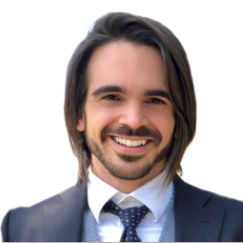 Since 2019 he is a PhD student in Neuroscience at the University of Genova,
where he has completed the Master in Rehabilitation of Musculoskeletal Disorders. Physiotherapist, his research field focuses on the study and treatment of musculoskeletal disorders with particular attention to chronic pain and its psychopathological
correlates. Research lines: Rehabilitation of Musculoskeletal Disorders through the Experimentation of Innovative Approaches; Modulation of Context Factors in the Treatment of Musculoskeletal Disorders; Movement Analysis through IMU and Force Sensors.
Since 2019 he is a PhD student in Neuroscience at the University of Genova,
where he has completed the Master in Rehabilitation of Musculoskeletal Disorders. Physiotherapist, his research field focuses on the study and treatment of musculoskeletal disorders with particular attention to chronic pain and its psychopathological
correlates. Research lines: Rehabilitation of Musculoskeletal Disorders through the Experimentation of Innovative Approaches; Modulation of Context Factors in the Treatment of Musculoskeletal Disorders; Movement Analysis through IMU and Force Sensors.
Franziska Domeier, PhD student, University of Stuttgart
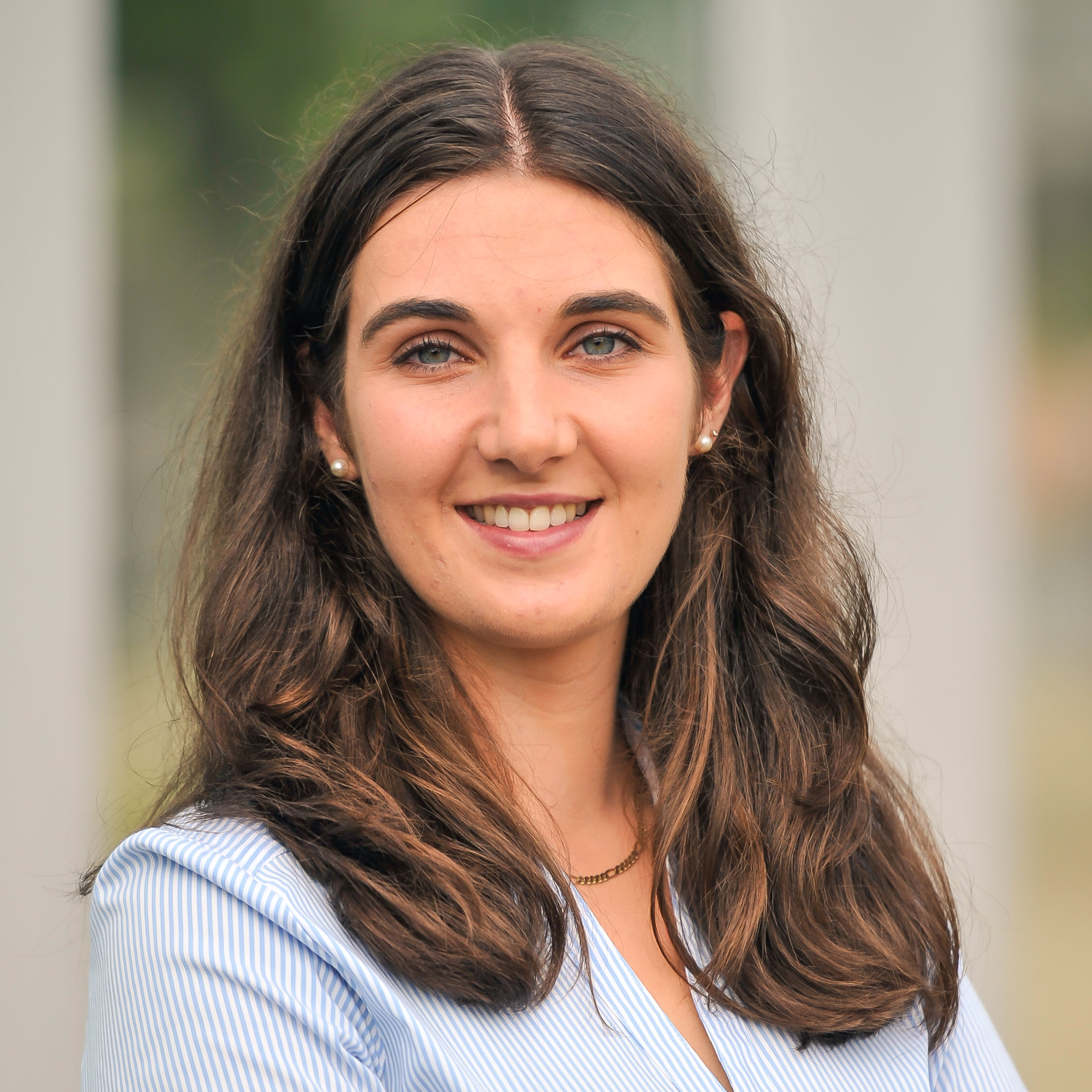
Mrs.
Franziska Domeier is a PhD student at the Cluster of Excellence SimTech and the Institute for Modelling and Simulation of Biomechanical Systems at the University of Stuttgart. She is doing her research in the field of motor interaction and control. Until
2019, she studied Medical Orthobionics and did her Masters Craftswoman in Orthopaedic Technology.
NeuRehab Summer School is a project realized by
University of Stuttgart (USTUTT) in collaboration with
University of Genova (UniGe)
With the support of



 Since 2017 he is a PhD student in Neuroscience at the University of Genova. The interests
gained during his university training in Bioengineering (2016) guide his research activity, aimed at the development of new methodologies and low-cost tools for the analysis of movement in rehabilitation. Research lines: Human Activity Recognition
(HAR); Development of Exergame in Immersive Virtual Reality; Movement analysis through IMU and force sensors.
Since 2017 he is a PhD student in Neuroscience at the University of Genova. The interests
gained during his university training in Bioengineering (2016) guide his research activity, aimed at the development of new methodologies and low-cost tools for the analysis of movement in rehabilitation. Research lines: Human Activity Recognition
(HAR); Development of Exergame in Immersive Virtual Reality; Movement analysis through IMU and force sensors. Since 2019 he is a PhD student in Neuroscience at the University of Genova,
where he has completed the Master in Rehabilitation of Musculoskeletal Disorders. Physiotherapist, his research field focuses on the study and treatment of musculoskeletal disorders with particular attention to chronic pain and its psychopathological
correlates. Research lines: Rehabilitation of Musculoskeletal Disorders through the Experimentation of Innovative Approaches; Modulation of Context Factors in the Treatment of Musculoskeletal Disorders; Movement Analysis through IMU and Force Sensors.
Since 2019 he is a PhD student in Neuroscience at the University of Genova,
where he has completed the Master in Rehabilitation of Musculoskeletal Disorders. Physiotherapist, his research field focuses on the study and treatment of musculoskeletal disorders with particular attention to chronic pain and its psychopathological
correlates. Research lines: Rehabilitation of Musculoskeletal Disorders through the Experimentation of Innovative Approaches; Modulation of Context Factors in the Treatment of Musculoskeletal Disorders; Movement Analysis through IMU and Force Sensors. Mrs.
Franziska Domeier is a PhD student at the Cluster of Excellence SimTech and the Institute for Modelling and Simulation of Biomechanical Systems at the University of Stuttgart. She is doing her research in the field of motor interaction and control. Until
2019, she studied Medical Orthobionics and did her Masters Craftswoman in Orthopaedic Technology.
Mrs.
Franziska Domeier is a PhD student at the Cluster of Excellence SimTech and the Institute for Modelling and Simulation of Biomechanical Systems at the University of Stuttgart. She is doing her research in the field of motor interaction and control. Until
2019, she studied Medical Orthobionics and did her Masters Craftswoman in Orthopaedic Technology.